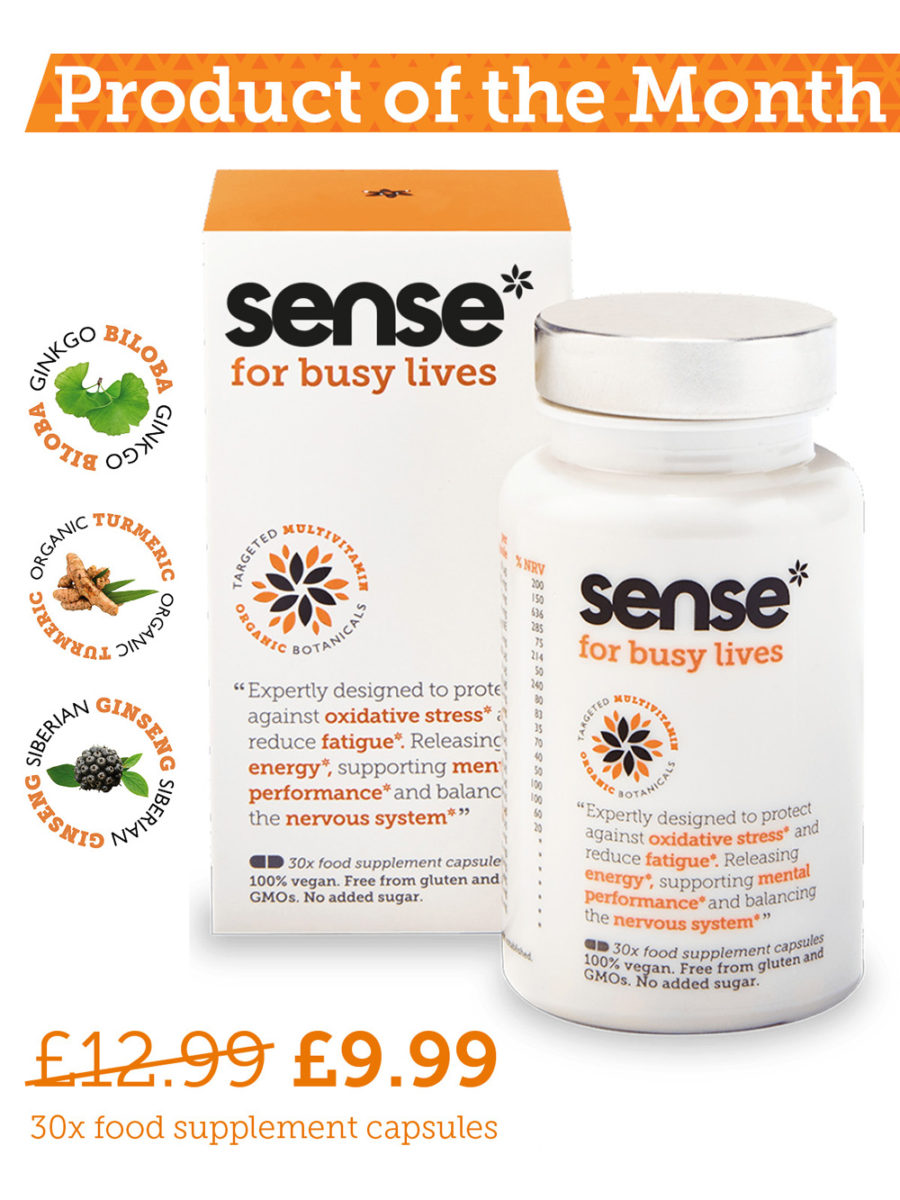
By Joan Ebsworth, guest writer for sense*, biologist and mother of sense* Founder, Jonathan on the Gut-Brain Axis, the connection between them, the 2nd brain and how to improve mental health, mood and well-being.
The Gut–Brain connection
It is alleged that it was Hippocrates who stated that “all disease starts in the gut “.
That was a long time ago but he wasn’t wrong!
New research
The research into the gut-brain axis is very new stuff and I feel that its development as a science might just change the practice of medicine.
Not yet though. The medical profession takes a long time to catch up!
I am even a bit scared of even writing about it! Why?
Skin is the 3rd element
We might even add “skin” to the above gut-brain axis title because the skin can become closely involved in developing symptoms such as rashes.
Or other warning signs like eczema. If the gut /brain axis is not working as well as it might.
This is another of those topics that books are written about so I am only scratching the surface.
Got that gut feeling?
We are all aware that at some point we have all spoken about having “a gut feeling” or making a “gut decision”.
Then there are the “butterflies in the stomach “ when anxious or being “ scared sh*tless”. The gut-brain axis in language form. Need I go on?
Emotions that we would normally only associate with the brain, we actually link to the gut too. And we have been doing this for a long time.
But the gut isn’t simple and neither is the brain. We now know that they affect each other greatly along the gut-brain axis.
The Digestive System
I am assuming that most people have a basic knowledge of the human gut or digestive system from way back in biology lessons at school.
It starts in the mouth and ends at the anus with lots of tubing in between – sometimes straight – sometimes swollen into a bag (stomach). And a lot of it is highly convoluted (the intestines).
You might even have learned what each bit does and you might have remembered some of it too😊.
Embarrassing terminology
Sadly people become very embarrassed about using words such as anus, rectum or faeces.
Consequently, they often ignore symptoms and as a gastroenterologist once said to me “people die because of embarrassment”.
I was having a rectoscopy at the time!
Interconnected systems
With the brain and nervous system youngsters are usually taught very little and that is a tragedy. Teachers also know little about the brain (that might have changed of course in recent years).
I used to teach in “systems” at school. Medicine specialises in “systems” too.
Yet all of these systems interconnect. And when one isn’t working as it should then there can be knock on effects across the whole body.
Staying in balance
Remember that good health is all about balance also known as “homeostasis”.
Our Second Brain
The more that we learn about the structure of the gut-brain axis: the gut, the nervous system of the gut and its microbiome. And possibly the virome too which are the viruses in and around the human body). The easier it becomes to call the gut our “second brain”.
70% of our immune system resides in the gut. So it is responsible for protecting the whole body.
Enteric nervous system
The nervous system of the gut is called the “enteric or intrinsic nervous system” or ENS. And it is extensive and different.
It is made up of a mesh like system of neurons, motor neurons and interneurons that are embedded into the gastrointestinal wall.
Vagus Nerve
Also linking from the brain to the gut is the vagus nerve – and this has a huge connection with most other major organs in the body.
It relays messages to the gut and from the gut to the brain. See my article about the importance of the nervous system and the vagus nerve.
Sole operator
But it can also operate on its own, independent of the other parts of the nervous system.
So that brain inside your skull is not the sole ruler of your body.
Maybe the “brain” in your gut isn’t involved in thought processes but believe me it is extremely complex and has a structure quite unique.
Communicating with the brain
And it can “talk” to the brain in many different ways. not just electrical but via many chemical pathways too.
Those with a variety of gut issues can also exhibit symptoms of depression, mood and anxiety disorders too.
Dysbiosis
There are now suggestions that ADHD, ADD, autism and other childhood neurological issues could be linked to gut microbiome imbalances ( known as “dysbiosis”).
Dysbiosis is also known to cause leaky gut syndrome and all that can ensue when that takes place such as auto-immune conditions. One of the fastest growing conditions or diseases in the western world.
Leaky brain syndrome
Now it is known that leaky brain syndrome exits as well. Which is where toxins or other natural matter passes through the blood-brain barrier. Not good news.
Gut improvement usually brings about an improved mental attitude to life in general.
This has been shown to take place in mice experimentation and is now being shown to be true in humans too.
Importance of the microbiome
It is the microbiome that is so important to the gut-brain . Those bacteria, fungi and other micro-organisms that live in our gut either in harmony or dis-harmony.
Some experts reckon on 100 trillion different critters in the gut alone (making up 99% of the microbiome).
Microbes v human cells
They are everywhere throughout the body. Ten microbes to every one human body cell!
There is no one size fits all microbiome. Each of us is unique and as long as what we have is working well and we are in balance –then we will not have any gut problems.
Mental health and the microbiome
And hopefully no mental health problems that we can’t deal with, low inflammation and an innate immune system that protects us.
One study illustrated how the gut and brain are connected through studying the effects of probiotics on patients with irritable bowel syndrome and depression.
Researchers found that twice as many patients saw improvements from depression when they took a probiotic as compared to the other patients who took a placebo.
Achieving balance in microbiome
So how can we achieve this? In no particular order here are some of the ways. Some will be new but many are the same old lifestyle habits that can make all the difference to our gut-brain axis health
- Be born via the vagina
As then you acquire the microbiome of your mother. Often these days a Caesarean baby will have those vaginal secretions swabbed into its mouth as it is born.
- Be breast fed ideally
Because once again a healthy mother will be passing on ideal nutrients for gut and brain plus the developing immune system.
- Avoid stress In yourself and in your children.
We all experience stress but it should be short lived not prolonged like it is during this CV 19 crisis.
I have had to really change the way in which I talk to myself as I had noticed gut issues creeping in and I did not want to have to deal with those.
Positive thought encourage healthy bacteria and good feelings.
- Avoid all processed industrial food and drink.
This you know already Eat plenty of plants, vegetables and fruits (particularly prebiotics) because the fibre in them will feed your microbiota and all of those beneficial microbes.
Dysbiosis will occur if you are not providing those microbes with the right foods – imbalance results – giving unpleasant symptoms from gas, bloating to diarrhoea and pain.
Eat probiotic foods Fermented foods such as sauerkraut, kimchi, kefir, kombucha (the 4 Ks)tempeh, miso, apple cider vinegar will foster good bacteria.
I don’t eat dairy foods but kefir and yogurts are also regarded highly and ought not be pasteurised as that will kill the good bacteria.
- Eat slowly and make meals pleasurable
Don’t rush mealtime or make it full of rules and stress for kids. No TV, no mobile phones just pleasant conversation and plenty of chewing.
- Eating enough good quality food is one thing.
Digesting it and absorbing it is another. If you don’t digest and you don’t absorb then you might as well not have bothered. It will just go straight through and come out at the other end.
- Have good sleep patterns
You need to keep your Circadian clock in rhythm and allow your body to do repairs overnight. See the article by sense* on the Circadian clock, rest and routine.
- Avoid antibiotics whenever possible
They will decimate the gut microbiome. But if you have to afterwards you will need to build up the microbiota again. Use the same pre- and pro-biotic foods and supplements.
- Avoid toxins
All toxic substances can affect the brain and the microbiome. So doing as much as possible to avoid such chemicals is vital.
Since 1950 80,000 different toxic chemicals have come into our lives. We have mentioned them previously. Do your very best to avoid which is not always easy. See Why do we feel like rubbish too often?
- Movement
In whatever guise gets oxygen around your body. See my article on Moving in Your 80s. If I can do it so can you😊
What doctors in the future might say
So in the future might my doctor be suggesting that I supplement with Lactobacillus plantarum. Not just to improve my gut microbiome but also reduce my anxiety.
Instead of anti-depressants like prozac or diazepam.
Who knows? But I wouldn’t hold my breath for the time being. Just do it yourself, so the advert says!
Microbes are friends not foe
Just be aware that microbes are rarely your enemy. We live together in harmony for most of the time. It is when our internal terrain goes wrong that nasty symptoms can and do occur.
We have little or no concept of how the 3 million bacterial genes affect us (we humans only have 20,000 human genes). Then there is the viral genetic material too. I could go on for a long time.
What does that make us
It begs the question: Are we really human?
I shall leave that for you to ponder on!
This is not a sense* article. The views expressed in this article are those of the author so there may be opinions or statements in this article that are not approved by sense* and do not represent the views and opinions of the company.

